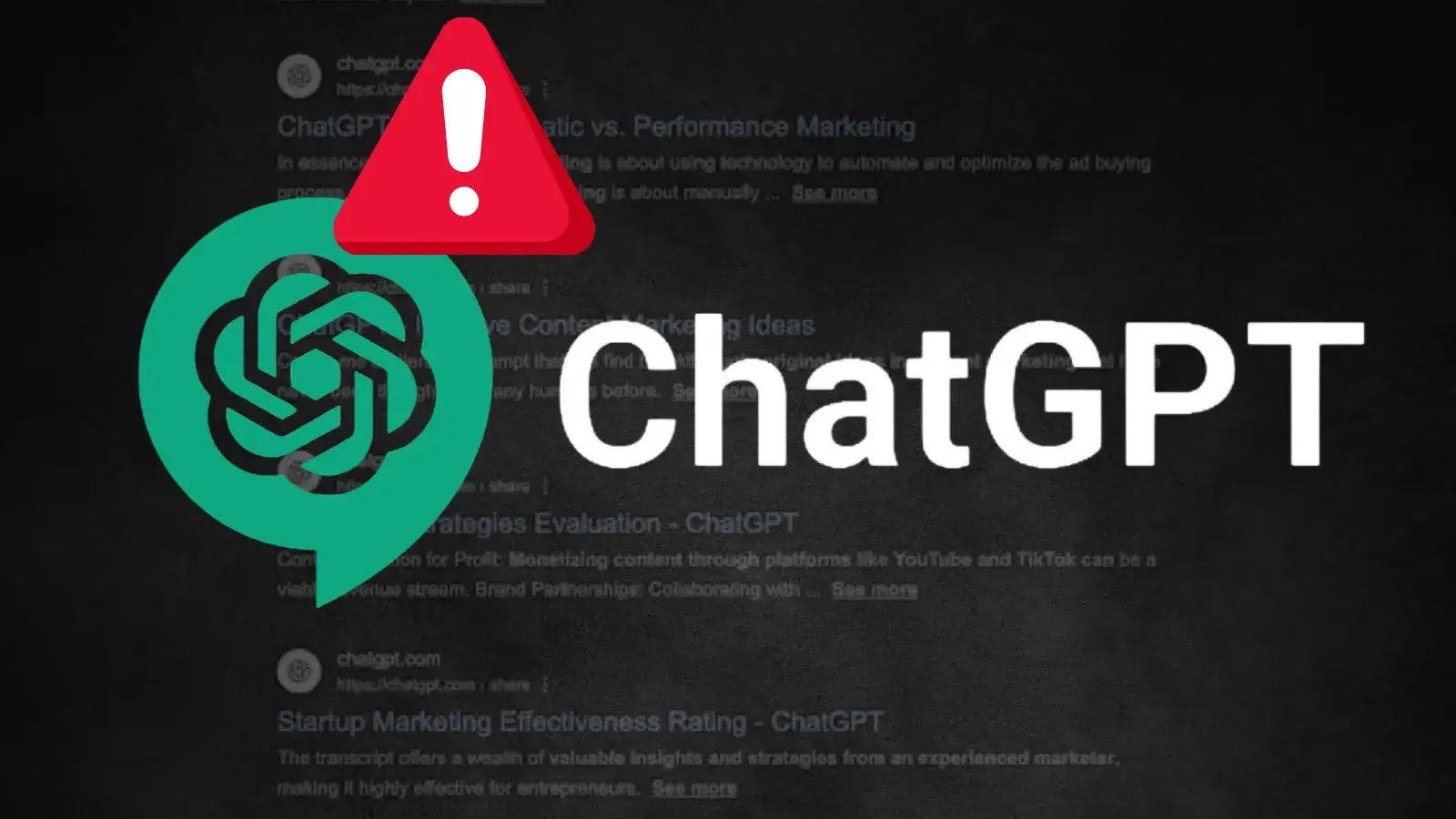Search Engines Are Indexing ChatGPT Chats — Here’s What Our OSINT Found
A significant privacy breach has emerged in the artificial intelligence landscape, as ChatGPT shared conversations are being indexed by major search engines, effectively transforming private exchanges into publicly discoverable content accessible to millions of users worldwide.
This discovery has exposed thousands of supposedly confidential conversations, ranging from personal mental health discussions to sensitive business information.
The Discovery and Scope of the Problem
The issue was first uncovered through investigative reporting by Fast Company, which revealed that nearly 4,500 ChatGPT conversations were appearing in Google search results.

Security researchers utilized a simple but effective Google dorking technique, searching for “site:chatgpt.com/share” followed by specific keywords, to uncover this treasure trove of private data.
The exposed conversations contained deeply personal information, including discussions about mental health struggles, addiction recovery, traumatic experiences, and intimate personal matters.
More concerning from a cybersecurity perspective, researchers found proprietary business information, source code, personally identifiable information, and even passwords embedded within code snippets shared through the platform.
Investigation revealed striking differences in how major search engines handled ChatGPT content indexing.

By August 2025, Google had largely ceased returning results for ChatGPT shared conversations, displaying “Your search did not match any documents” for most queries.
Microsoft’s Bing showed minimal results with only limited indexed conversations appearing in search results.
![Google search blocked [Image Credits : cybersecuritynews.com]](https://gbhackers.com/wp-content/uploads/2025/08/image-1.jpeg)
Paradoxically, DuckDuckGo, the privacy-focused search engine, became the most effective tool for discovering these conversations, continuing to surface comprehensive results from ChatGPT exchanges.
This ironic situation made the privacy-oriented platform the primary gateway for accessing supposedly private AI conversations.
ChatGPT’s sharing feature, introduced in May 2023, allowed users to generate unique URLs for their conversations.
When users clicked the “Share” button, they could create public links and had the option to check a box labeled “Make this chat discoverable,” enabling the content to appear in web searches.
![Duckduckgo search result [Image Credits : cybersecuritynews.com]](https://gbhackers.com/wp-content/uploads/2025/08/image-3.jpeg)
![Copilot search result [Image Credits : cybersecuritynews.com]](https://gbhackers.com/wp-content/uploads/2025/08/image-4.jpeg)
While this required deliberate user action, many users appeared unaware of the broader implications of enabling this feature.
Recognizing the severity of privacy implications, OpenAI acted swiftly to address the vulnerability.
On August 1, 2025, Chief Information Security Officer Dane Stuckey announced the removal of the discoverable feature, stating: “We just removed a feature from ChatGPT that allowed users to make their conversations discoverable by search engines.”
OpenAI characterized the feature as “a short-lived experiment to help people discover useful conversations” but acknowledged it “introduced too many opportunities for folks to accidentally share things they didn’t intend to.”
The company committed to working with search engines to remove already-indexed content from search results, though the effectiveness of this effort remains to be seen.
Find this News Interesting! Follow us on Google News, LinkedIn, and X to Get Instant Updates!














Post Comment